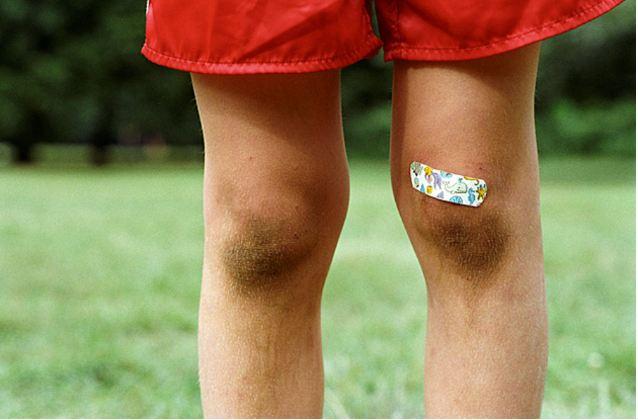Self-harm

Self-harm is when a person deliberately and often repeatedly injures themselves. It’s most common in people aged between 11 and 25, although anyone can self-harm at any age.
About Self-harm
Symptoms of self-harm
Complications of self-harm
Causes of self-harm
Diagnosis of self-harm
Treatment of self-harm
About Self-harm
You may self-harm because you feel it helps you to deal with distressing or overwhelming thoughts and emotions. It can act as a temporary release from negative feelings and can help take your mind off things that make you feel low. For some people it can be a way of communicating their feelings to others.
If you self-harm you may injure yourself by:
- cutting your skin
- scratching or picking your skin
- burning your skin
- hitting and punching yourself
- pulling out your hair or eyelashes
- swallowing poison
- taking an overdose of tablets or medicines
- breaking bones
- banging yourself against objects
Other, less obvious ways such as drinking too much alcohol, taking recreational drugs, smoking, working long hours, starving yourself or binge eating are also forms of self-harm.
Self-harm is most common in young people but it can occur at any age. Young women are more likely to self-harm than young men, although the number of young men who self-harm is increasing. It’s difficult to know the exact number of people who self-harm as many people do it secretly and never seek medical help.
Symptoms of self-harm
It can be very difficult to tell if someone is self-harming. People who self-harm often go to great lengths to keep it a secret from friends and family. Other people may use self-harm as a way of communicating their feelings and want people to see their injuries.
If you self-harm you may cover your injuries with clothing and avoid activities that expose your body such as swimming and sunbathing. You may be depressed, or become socially withdrawn and isolated.
Complications of self-harm
Most people who self-harm aren’t trying to attempt suicide. People usually self-harm to deal with overwhelming feelings and thoughts.
Occasionally self-harm can be a failed genuine suicide attempt. About a quarter of people who commit suicide have been to hospital because of self-harm in the past year.
Cutting your skin can cause permanent scarring and numbness.
Causes of self-harm
People self-harm for a number of reasons. Often people have low self-esteem and feel hopeless. You may self-harm as a way to manage the problems and pressures of everyday life. It can help you gain control of a difficult situation or can be used as self-punishment if you feel guilty. If you’re unhappy or feel helpless, you may self-harm to release your negative emotions. It can also be a way to express yourself, perhaps to get the attention of people when other ways of communication haven’t been heard.
Certain painful and difficult experiences can lead to self-harm, these include:
- losing someone close to you such as a parent, friend or relative
- being neglected
- physical or sexual abuse
- relationship problems
- poor health
- alcohol misuse
- being bullied
People with mental health problems such as schizophrenia, depression and bipolar disorder are more likely to self-harm.
Around one or two in ten people who self-harm will do it again within one year.
Diagnosis of self-harm
Telling someone about your self-harm can be difficult. You may feel embarrassed or guilty about harming yourself. You may fear that no one will understand you and you will lose control over your problem. You may also be worried that you won’t be taken seriously. It’s important that you talk to someone who you trust such as a relative, a friend or your doctor.
Treatment of self-harm
There are a number of treatments available for self-harm. It’s important that your doctor diagnoses and treats the underlying causes of your self-harm.
Self-help
Keeping a diary of your feelings and making a note of when you feel the need to harm yourself may be helpful. Lifestyle changes such as eating a healthy diet, making sure you get plenty of sleep and doing some physical activity can help to make you feel better about yourself.
When you feel the need to self-harm, try distracting yourself by:
- calling or visiting a friend or relative
- being creative – draw, paint or write about how you’re feeling
- listening to music or reading a book
- taking a hot bath
Support groups may also be helpful. As well as offering support, it’s often comforting to know that someone else feels the same as you.
Getting help
Visit your GP and he or she can give you advice on how to care for your injuries. He or she can also give you information about support groups and tell you about the treatments that can help you. If your self-harming is severe, your GP may refer you to local psychiatric services for further assessment and treatment.
Talking treatments
Your GP may suggest cognitive behavioural therapy (CBT) and can refer you to a therapist. This type of therapy will help you change the way you think, feel and behave. It will help you identify the thoughts and feelings that act as triggers for self-harm. CBT can make you feel more able to deal with the challenges in your life. For more information about CBT, please see related topics.
Other forms of therapy such as psychodynamic therapy aim to identify past experiences that may have caused you to self-harm. Dialectical behaviour therapy may also be helpful for self-harm.
Medicines
Research into medicines for self-harm is very limited. If you’re depressed your GP may prescribe you an antidepressant.
Hospital treatment
If you’re at risk of suicide or seriously harming yourself, you may have to stay in hospital.
You may be admitted to hospital if you have taken an overdose or if your injuries are very severe. Most Accident and Emergency departments have a psychiatric liaison nurse or a social worker who will talk to you about why you have hurt yourself. He or she will assess your physical, mental and social needs so you can get the right treatment.
How can I help my friend who self-harms?
How can I let my family know that I self-harm?
I’ve heard that skin camouflage is an effective way of disguising a scar. Is this true?
How can I help my friend who self-harms?
Answer
It can be difficult to come to terms with the fact that your friend self-harms. You may feel helpless, shocked or even angry with your friend. There are a number of things you can do to help.
Explanation
If your friend self-harms, the most important thing you can do is to listen to his or her problems. This can be difficult, especially if you’re feeling angry or confused, but it will reassure your friend that he or she isn’t alone.
You should encourage your friend to seek medical help and offer to go with him or her to the first appointment. It’s important that your friend feels in control of his or her recovery so you shouldn’t force your friend to do anything he or she doesn’t feel happy with.
If your friend drinks alcohol or uses drugs, try to encourage your friend against it as it may make him or her more likely to self-harm. Also, ensure that your friend has things in his or her life which make them happy.
You may find it helpful to learn more about self-harm. There are a number of support groups available where you can find out more and share your experiences. Talk to someone close to you about how you’re feeling.
Remember that it will take time for your friend to get better and it may take a while for him or her to trust you.
How can I let my family know that I self-harm?
Answer
If you self-harm you may find it difficult to ask for help because you feel ashamed or worried that the person you tell won’t understand you. You may worry that you will be forced into treatment or you simply don’t know what help is available. It’s important that you feel ready to discuss self-harm with your family.
Explanation
Speaking to a member of your family about self-harm can be difficult. He or she may find it hard to hear the truth. This could be because your family member feels guilty for not noticing that you were feeling low, or thinks he or she could have done something to make you self-harm.
You should decide when and how best to discuss self-harm with your family member. You may find it easier to talk with a friend or GP, especially if relationships within your family are difficult. If you’re worried about speaking to a family member, you could talk to them with someone else there, perhaps someone who knows more about the subject such as a therapist or a GP.
I’ve heard that skin camouflage is an effective way of disguising a scar. Is this true?
Answer
Yes, skin camouflage can be used to help minimise the appearance of scarring.
Explanation
There are a number of products that you can use to help decrease scarring. You can easily hide scars with long-sleeved tops. If you wish to remove your scars completely, plastic surgery may be an option.
Camouflage creams can be used to improve the appearance of your scarring. The creams blend into your skin colour to make your scars less noticeable. The waterproof creams last for up to 18 hours before you need to retouch.
Skin camouflage can help to build your confidence and self-esteem. If you’re interested in skin camouflage you should speak to your GP. He or she may refer you to a member of the British Association of Skin Camouflage (BASC), or the Red Cross skin camouflage service. You will be shown how to apply the cream and how to match the colour to your skin tone.
One visit is usually sufficient to give you information about skin camouflage and create a skin match.
Camouflage creams are usually available from your GP on prescription.
Further information
National Association for Mental Health (Mind)
0845 766 0163
www.mind.org.uk
Mental Health Foundation
020 7803 1101
www.mentalhealth.org.uk
Rethink
0845 456 0455
www.rethink.org
Sources
- Self harm. Rethink, 2005. www.rethink.org
- Self harm. Mind. www.mind.org.uk, accessed 16 December 2010
- Suicide and self harm. Rethink. www.rethink.org, accessed 16 December 2010
- Self harm. The Royal College of Psychiatrists. www.rcpsych.ac.uk, accessed 16 December 2010
- What is self-harm? YouthNet. www.thesite.org, accessed 16 December 2010
- Self-poisoning and overdosing. YouthNet. www.thesite.org, accessed 16 December 2010
- The truth about self harm. The Mental Health Foundation. www.mentalhealth.org.uk, accessed 21 December 2010
- Personal communication, Dr Gabrielle Pendlebury, Honarary Research Fellow, Institute of Psychiatry, 10 March 2011
- Self harm. Royal College of Psychiatrists. www.rcpsych.ac.uk, accessed 20 December 2010
- Self-harm: The short-term physical and psychological management and secondary prevention of self-harm in primary and secondary care. National Institute for Health and Clinical Excellence (NICE), 2004. www.nice.org.uk
- Skin camouflage. British Red Cross. www.redcross.org.uk, accessed 21 December 2010
- Products used. British Association of Skin Camouflage. www.skin-camouflage.net, accessed 21 December 2010
- Consultations. British Association of Skin Camouflage. www.skin-camouflage.net, accessed 21 December 2010
















